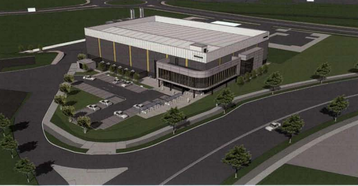Irish managed service provider Servecentric has renewed its lease with data center provider Digital Realty in Dublin after proposals to build a facility of its own were rejected by planning officials.
The company has been a Digital Realty customer since 2009 and has announced an extension of its lease in Digital Realty’s DUB10 facility, in a deal to the value of €10 million ($10.96m).
Last year the company filed to develop a two-story data center and substation on an undeveloped 1.9-acre site currently permitted for a warehouse/logistics unit in the Blanchardstown Corporate Park in Ballycoolin. Fingal County Council rejected the application in November.
Earlier this year, Servecentric lodged an appeal against the decision. Data centers in Ireland have come under close scrutiny to stop expansion because of increasing pressures on the electricity grid.
The DUB10 facility is less than a mile away from Servecentric’s proposed development.
Servecentric said that the six-year deal with Digital Realty will “enhance its service portfolio and increase capacity for both existing and new customers.”
The CEO of Servecentric, Brian Roe, said: “Working with leaders like Digital Realty helps us to uphold world-class standards and identify more opportunities not only in Ireland but also across international markets.”
The company said it generated revenues of €6 million ($6.5m) from international markets in the last two years.
Tanya Lay, director, asset management, Digital Realty, said: “Ireland’s digital economy continues to grow, resulting in a greater demand for Servecentric’s services.”
The company said that the DUB10 facility “delivers enhanced physical security, improved resilience, and increased operational efficiency.”
Founded in 2002, Servecentric is an Irish colocation and managed services provider.
A de facto moratorium on new data centers in Dublin was imposed by state-owned grid operator EirGrid due to transmission issues in early 2022. However, even projects with pre-existing connection permissions from EirGrid have faced difficulties amid a hostile landscape - and a number of proposals have been rejected.







